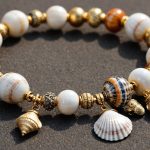Overview of Eco-Friendly Fashion in the UK
The eco-friendly fashion industry in the UK has undergone significant transformation over the years, evolving from niche markets to more mainstream adoption driven by an increasing focus on sustainable practices. Historically, eco-friendly fashion started as small movements dedicated to crafting garments from organic fabrics, recycled materials, and/or upcycled clothing. This gradual shift toward sustainability was initially propelled by environmental consciousness among designers and pioneering youth subcultures.
Currently, the UK fashion trends show a substantial surge in consumer demand for sustainable brands. Conscious consumers are prioritizing brands that showcase transparency in their production processes and commitment to ethical practices. This newfound demand is influencing retail and production on a larger scale, resulting in increased investment into research for innovative materials and sustainable cutting-edge practices. As companies adapt, they not only meet but actively drive innovative legislation forward focused on reducing carbon footprints and waste.
Also to read : Mastering outfit enhancement: choosing the perfect accessories for a stunning look
In terms of innovations, there has been notable development in sustainable materials such as biodegradable textiles, those derived from agricultural by-products, and eco-friendly dyeing processes. Start-ups and established brands alike are investing in technology and methods that lessen the environmental impact of fashion production. These sustainable practices not only fulfill consumer demands but also set the industry on a path towards long-term ecological responsibility.
Notable Eco-Friendly Fashion Brands
The eco-friendly fashion landscape in the UK is adorned with remarkable brands pushing the boundaries of sustainability. These brands exemplify innovative practices and ethical production methods, setting new benchmarks for the industry.
Topic to read : How can i successfully mix and match prints? expert tips revealed
Brand 1: Stella McCartney
Stella McCartney is a pioneer among leading sustainable brands, renowned for her commitment to ethical fashion without sacrificing style or functionality. Emphasizing innovative practices, McCartney’s eponymous brand has consistently used eco-friendly materials such as organic cotton, recycled textiles, and responsibly sourced wool. Her impact resonates both locally and globally, raising awareness and setting a standard for others in the fashion world to follow. The consumer reception has been overwhelmingly positive, fueling the brand’s steady growth and its role in mainstreaming sustainable luxury fashion.
Brand 2: People Tree
People Tree stands out in the realm of UK eco-fashion labels, known for employing unique materials like organic cotton and TENCEL™ while ensuring fair trade practices are upheld. The brand’s steadfast community involvement and advocacy for sustainable development have solidified its reputation as a proponent of ethical fashion. Through initiatives like training programs for artisans and fabric workers, People Tree fosters empowerment and skill development in vulnerable communities. Commendable sales growth over the years highlights a consumer inclination toward brands that prioritize ethical supply chains and sustainable materials.
Brand 3: Rapanui
Rapanui is celebrated for its significant innovations in design and production methods, utilizing a closed-loop system for recycling and transforming waste textiles into vibrant, new garments. The brand has earned awards and recognitions for its efforts in merging technology with sustainability, receiving accolades for their eco-conscious approach. Collaborations with sustainable initiatives such as the Circular Economy Project exemplify Rapanui’s commitment to advancing environmental responsibility. The brand not only embodies sustainable practices but encourages a robust dialogue regarding holistic approaches to eco-friendly production.
Influential Designers in Eco-Friendly Fashion
Eco-friendly fashion is not just a trend; it’s a movement led by innovative and passionate designers who are reshaping the industry’s future. These sustainable fashion designers have made significant strides by creating collections that prioritize ethics and environmental consciousness, thus making a substantial impact on fashion trends globally.
Profiles of Top Designers
Several designers have been pivotal in championing sustainability within the fashion world. Stella McCartney stands out due to her pioneering work with cruelty-free materials, setting an example for luxury brands worldwide. Other notable designers like Vivienne Westwood have utilized their platforms to emphasize the importance of climate change and ethical manufacturing.
Design Philosophies
Eco-conscious design philosophies revolve around using materials with minimal harm to the environment, ensuring ethical labor practices, and promoting prolonged product life cycles. Designers are increasingly sourcing fabrics like recycled polyester and organic cotton, which reduce waste and pollution. These philosophies serve as a framework for creating fashion that respects both people and the planet.
Notable Runway Shows and Collections
Runway shows have become a crucial arena for showcasing eco-friendly trends. Collections like those of Eileen Fisher are celebrated for their simplicity and commitment to ethical production. Meanwhile, events like London Fashion Week are dedicating stages to sustainable collections, highlighting the industry’s shift towards greener fashion alternatives. These showcases not only spotlight eco-friendly designs but also educate consumers, setting the stage for future industry standards.
## Impact of Eco-Friendly Fashion on Consumer Behavior
The rising demand for **sustainability** is reshaping consumer behavior in the fashion sector. There's a notable shift as more individuals are keen on **eco-conscious shopping**. This is largely due to increased awareness around environmental impacts and a growing desire to support responsible brands.
Demographic shifts play a monumental role in this transition. Younger generations, in particular, are leading the charge, showcasing a preference for brands that demonstrate a transparent commitment to ecological and ethical standards. This inclination is mirrored in **market trends**, where a substantial portion of fashion sales now leans towards eco-friendly products.
Statistics reveal that brands with a sustainable focus are experiencing notable sales growth. For instance, a pivotal increase in the purchase of **eco-friendly fashion products** underscores the evolving preferences of today's consumers. This change is not just about product choice; it's about lifestyle integration and the shift towards a greener wardrobe.
The heightened **awareness and education** efforts in the industry also play a crucial part. Consumers are now more informed, thanks to various campaigns and initiatives, about the environmental benefits of choosing sustainable fashion. Thus, the ripple effects of eco-friendly fashion initiatives extend beyond the market, deeply influencing consumer habits and encouraging more informed decisions in shopping.
Case Studies of Successful Sustainable Initiatives
The realm of sustainable fashion thrives on examples that underscore the impact of eco-friendly initiatives and practices. These initiatives not only highlight successful methods for incorporating sustainability but also provide a roadmap for future endeavors in the industry.
Initiative 1: Fashion Revolution Week
Fashion Revolution Week stands as a prominent case study in sustainable fashion initiatives, established to honor the victims of the 2013 Rana Plaza collapse. This campaign aims to transform the fashion industry by advocating for transparency and accountability. Through outreach and educational programs, it has fostered increased consumer awareness regarding supply chains and sustainable practices.
This initiative introduced several innovations, such as the “Who Made My Clothes” campaign, prompting brands to disclose their production processes. This transparency has encouraged a broader dialogue around ethical fashion, influencing many brands to embrace openness in their operations. Consumer and industry response has been overwhelmingly positive, with more brands participating each year and contributing to a movement towards responsible consumption and production.
Initiative 2: The Higg Index
The Higg Index, developed by the Sustainable Apparel Coalition, serves as a critical benchmarking tool for evaluating the sustainability of fashion products. Unlike traditional fashion initiatives, which often focus on aesthetics alone, the Higg Index emphasizes a holistic approach by assessing environmental and social impacts across an item’s entire lifecycle.
Key partnerships with several major fashion retailers have significantly boosted sustainability efforts by incorporating this tool into their operational framework. By involving stakeholders throughout the supply chain, the index has shifted the industry towards more eco-conscious practices. The long-term effects on consumer behavior include heightened awareness and a preference for brands that use such comprehensive measures to evaluate and improve their environmental footprint. These initiatives propel the industry toward a more sustainable future, offering tangible proof of the benefits and feasibility of adopting eco-friendly practices.
Future Trends in Sustainable Fashion
The trajectory of sustainable fashion in the UK is poised for transformative change as emerging trends and innovations in materials propel the industry forward. With a rising focus on the future of eco-fashion, there is increased exploration into sustainable materials, coupled with a strategic reevaluation of consumer engagement practices.
Predictions for Sustainable Materials
The future of sustainable fashion hinges on the development of new materials. Innovations such as lab-grown fibers and advanced biodegradable options present exciting opportunities for reducing the ecological footprint of the industry. These materials not only promise to revolutionize the fashion supply chain with minimal environmental impact but also offer durability and versatility, widening their appeal across various consumer segments. Emerging brands remain at the forefront of this innovation, prioritizing the integration of cutting-edge materials for a sustainable future.
Trends in Consumer Engagement
Consumer engagement is increasingly influenced by digital platforms, with social media playing a pivotal role in promoting eco-friendly fashion. The adoption of sustainable marketing strategies, such as influencer partnerships and virtual fashion shows, has expanded the reach of sustainable brands, fostering a stronger connection with eco-conscious audiences. Transparency, now more crucial than ever, propels consumer trust and loyalty, as brands that openly share their practices and initiatives experience heightened engagement.
Regulatory and Policy Changes
Regulatory frameworks and policies within the UK are evolving to support sustainable fashion. Recent legislation encourages companies to adopt greener practices, aiming to minimize the industry’s environmental impacts. Proposed future regulations could mandate stricter compliance standards and incentivize innovation within the sector. The potential impacts on industry practices are vast, offering consumers more eco-conscious options and further embedding sustainability within the industry’s core ethos.







